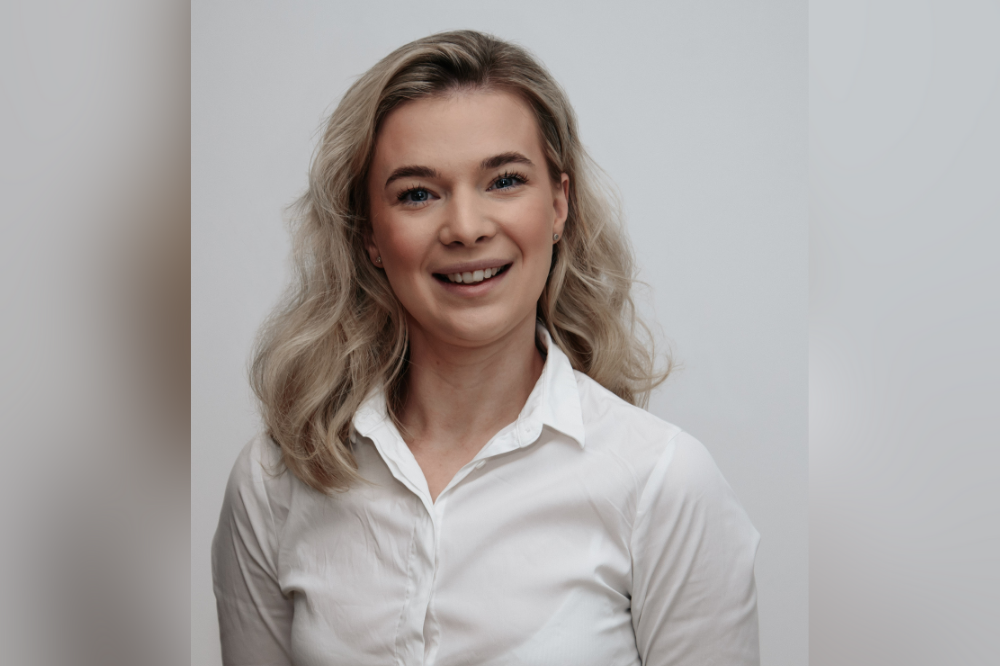Hobart-based Rhianna Farnan from Derwent Finance is seeking to improve awareness of mental health challenges in the mortgage broking and lending industry with the launch of an event looking at how brokers can support themselves and others to improve mental health.
After hearing some confronting statistics from the MFAA about industry suicides, and her determination that “one is too many”, Farnan (pictured above) said she was moved to put on an event to help brokers come together with other professionals to discuss mental health issues.
“I guess I’m known more for speaking about or on social media, but after hearing people were losing their lives in this industry, I thought it would be good to have an event where brokers could come together to speak and have a discussion with experts around mental health,” Farnan said.
The event, to be held at Franklin Wharf, Hobart, on April 19, will feature a presentation from Mitch McPherson, founder of Stay ChatTY, a not-for-profit organisation that aims to raise awareness about mental health, as well as the FBAA’s CEO Peter White and a surprise guest speaker sharing their personal mental health journey.
Farnan said the event aims to bring together mortgage brokers, bank staff, financial advisors, accountants and real estate agents. Sponsors who have joined the event to date include CBA, NAB, outsource Financial, MyState Bank, ubank, the FBAA and Paramount Mortgages.
Mortgage brokers face mental health challenges
Mortgage broking can be a one-man – or one-woman – show a lot of the time, said Farnan, which can make it a lonely and isolating profession. The confidential nature of client situations also meant brokers often “keep it in” rather than expressing themselves and talking freely with those who might provide support.
“In an environment where interest rates are going up, borrowing capacity is going down and people might not be able to afford a home loan, the pressure can be on the broker to do the right thing and fix the situation, which in a lot of times they can’t, and it’s not their responsibility to do so.”
Farnan said at times brokers can even be on the receiving end of abuse from their customers, which can add to pressure on brokers to deal with the situation the customer is in, and lead to a lot of problems with mental health due to an ongoing build-up in anxiety and stress.
“There’s also the stress of not having an income that is going to be exactly the same every single month. Then when you’ve done a loan and you get a commission, there’s the possibility of a clawback as well – so it can be very financially stressful for brokers,” she said.
Farnan said those new to broking are vulnerable. “Personally, me and my partner struggled with mental health at the beginning, because we didn’t know if we were going to make it, and it’s really hard to get into the industry and start doing the work and getting the clients.
“For people who have been in the industry a long time it can also be isolating. I’ve heard people say that they have been struggling, that their mental health has never been so bad, or that they want to leave the industry – I think people need to know that they can speak up.”
Making mortgage broking more than a ‘one-man show’
Farnan said there were avenues of support within the industry, including mental health facilities offered to accredited brokers by major lenders and aggregators, and support through industry associations, such as the assistance that the FBAA offered to its members and their families.
Farnan said brokers needed to ensure they were “finding a life outside work” to safeguard health.
“I know this is really hard when you are starting a business – you need to work hard and knuckle down. I got to the point myself where I had completely lost all my hobbies, and when people asked me what I did, the answer would be work – I wouldn’t have a lot to say outside of that.
“It can be hard to step away from the computer and phone but it is important to find a life or hobby – whether that’s a sport or a book club or even other brokers you can catch up with over coffee – you need to get out there talking to people rather than being at your computer all day every day.”
Farnan said that for her finding a different way to market her business through TikTok was a bit of a circuit breaker, as she was able do things like go out and talk to camera and interact with people through the platform, which brought more variety and joy into her working life.
“I think it’s really important if you have a team to have the knowledge about what to do if someone in your workplace is struggling. It might be noticing something about a decline in work ethic, or being more quiet than usual, and having the knowledge and skills to be able to reach out.”
Farnan said that everyone in the industry, including BDMs and aggregators, could play a role in supporting each other by paying attention to the signs that someone might need some support, particularly the many brokers who were running one-person operations.
If this article has raised issues for you, support is available at Lifeline on 13 11 14 or Beyond Blue on 1300 224 636. A list of mental health resources for brokers has been compiled by the MFAA here.


